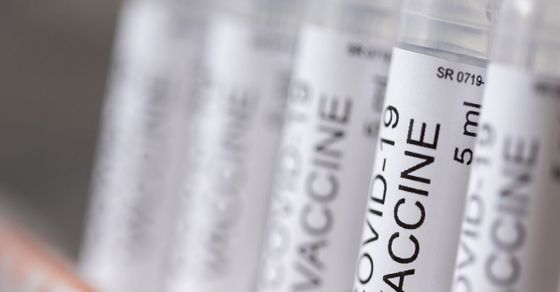Oxford University’s COVID-19 vaccine proves effective in monkeys, researchers await human trial results
[ad_1]

Oxford University’s COVID-19 vaccine proves effective in monkeys, researchers await human trial results  |  Photo Credit: iStock Images
Key Highlights
- Oxford University’s vaccine candidate is one of the potential coronavirus vaccines undergoing human trials
- A study has found that the vaccine has proven effective in a small study of monkeys
- If the human trials in the UK are successful, the team plans to conduct further trials in Kenya
New Delhi: One of the most potential coronavirus vaccine candidates around the world and the UK’s biggest COVID-19 vaccine project, which is currently in its human trials, has shown promising results in monkeys.
According to a report in PTI, researchers involved with the ChAdOx1 nCoV-19 trials have said that the vaccine has shown signs of producing an immune response in rhesus macaque monkeys’ immune systems against the deadly coronavirus, without any side effects.
The study is still to be peer-reviewed. However, it has stated that a single dose of vaccine was also effective in preventing any damage to the lungs and other organs severely affected by the novel coronavirus.
“We observed a significantly reduced viral load in bronchoalveolar lavage fluid and respiratory tract tissue of vaccinated animals challenged with SARS-CoV-2 (COVID-19) compared with control animals, and no pneumonia was observed in vaccinated rhesus macaques,” the authors said.
According to the study, the researchers found that even when the monkeys were exposed to high levels of coronavirus, none of them developed viral pneumonia. They also did not see any signs where the vaccine made the animals more vulnerable.
The development is very encouraging for the vaccine as it is undergoing human trials currently. However, it still remains to be seen if it will be as effective in humans.
“These results support the ongoing clinical trial of the vaccine in humans, the results of which are eagerly awaited,” said Dr Penny Ward, visiting professor in pharmaceutical medicine at King’s College London.
Sarah Gilbert, professor of Vaccinology at the University of Oxford’s Jenner Institute, who is also leading the vaccine project had previously said that she was very confident that the vaccine will be ready by September.
“Of course, we have to test it and get data from humans. We have to demonstrate it actually works and stops people getting infected with coronavirus before using the vaccine in the wider population,” she said.
Various pharma and drug giants are also partnering with the Oxford University team for the production of the vaccine.
“We’re now starting to wait for an advocacy signal to see whether people who’ve been vaccinated don’t get the disease, so that’s the next step,” said John Bell, professor of medicine at the University of Oxford.
The challenges for human trials
As the vaccine undergoes human trials, the team at Oxford University is facing a challenge that there may not be enough active disease in the community for the participants to catch the disease naturally. Researchers are continuing to make calculations around this as human trials progress in some regions of the UK.
If the trails are successful in the UK, the team aims to approach scientists in Kenya Medical Research Institute (KEMRI) and will also contact the Government of Kenya to get permission for trials in Kenya.
“We also want to make sure that the rest of the world will be ready to make this vaccine at scale so that it gets to populations in developing countries, for example, where the need is very great,” Bell said.
The results of the human trial are eagerly awaited by researchers who hope that they will be available by next month. Healthcare workers who are on the frontlines of the pandemic were among the first batch of people to undergo trials in the UK.
The novel coronavirus has so far infected more than 4 million people around the world and claimed more than 300,000 lives.
[ad_2]
Source link

